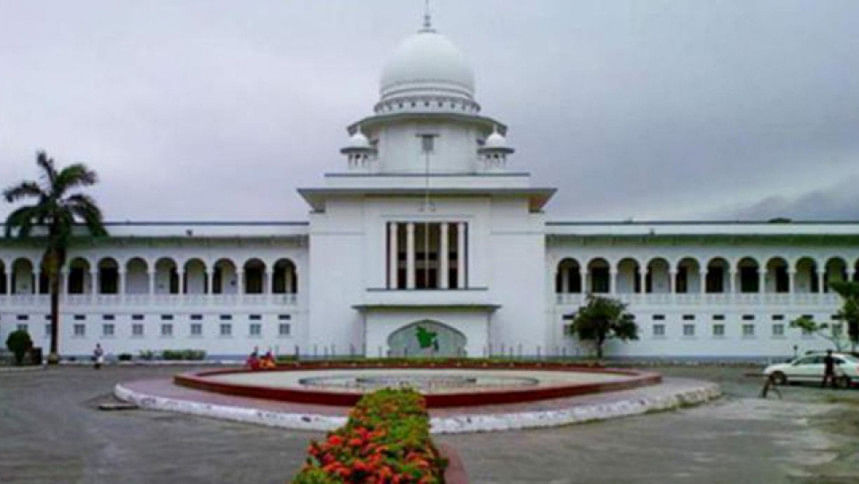Trial courts must hold sentencing hearings: HC

In a landmark directive, the High Court has said the trial courts must hold separate hearings on sentencing in criminal cases.
The sentence in such a case must be pronounced at a later date.
The directive comes in the full text of a verdict, which observes that the number of death sentences at trial courts is rapidly increasing, and the convicts have to suffer on death row for around six years, as they go through the appeal hearing process.
Legal experts believe these directives will significantly reduce the number of death and long-term imprisonment sentences awarded by trial courts.
Courts in Bangladesh do not hold hearings on sentencing. But it is practised in different countries so that punishments commensurate with the crimes. Legal systems in the US, the UK, and Australia follow methods that ensure consistency in sentencing.
Talking to this newspaper, criminal law expert Khurshid Alam Khan said the separate hearing on sentencing is definitely a positive step, and it would add a new dimension to the criminal justice system.
"However, I think a specific law or guideline must be formulated in this regard," he said.
Supreme Court lawyer Mohammad Shishir Manir, who moved at least 120 death sentence-related cases before the HC, said, "This is a landmark judgement for this subcontinent. If this judgement is implemented, there will be a sea change in the criminal justice delivery system in Bangladesh.
"We have analysed 200 criminal cases and found that only 20 percent of the death and long-term imprisonment sentences are upheld, 50 percent are commuted and 30 percent of the convicts get acquitted."
As of November 1 last year, there were 2,162 convicts on death row in prisons across the country, said a report submitted to the HC bench.
The verdict mentions that the Supreme Court registrar general must issue a circular directing the courts and tribunals across the country to comply with the directive on sentencing.
The HC also asked the authorities concerned to send a copy of the judgement to the law secretary, so that necessary actions are taken.
Specifying how judgements will be delivered, the verdict says when the final argument of the parties is concluded and the judge has decided to award death or life imprisonment or imprisonment for a term of years, the judge will express the decision in the open court or tribunal.
The judge will then fix a date, within the shortest possible time, for a separate hearing in order to determine the appropriate sentences.
The 84-page verdict by the HC bench of Justice Sheikh Hassan Arif and Justice Biswajit Debnath was released on Thursday.
"In such [sentencing] hearings, the trial judge shall balance between aggravating and mitigating circumstances with an eye on particular issues like the nature of sentence, circumstances of its commission, the age and character of the offender, the injury to the individuals or to the society, whether the offender is a habitual, casual or a professional offender, effect of punishment on the offender, delay in the trial and mental agony suffered by the offender during the prolonged trial…" reads the verdict.
The trial court judges must also consider the possibility of correction and reformation of the offender before pronouncing the judgements, it says.
"Taking away the life of an individual is a highly serious act and the courts of law are always reluctant to pass any such order, unless it is bound to do so by the Act of the Legislature."
Some countries have already abolished death sentences as the parties to a criminal proceeding are human beings. Humans are bound to make mistakes, and mistakes should not take away the life of an individual, it says.
"Indian Supreme Court in Bachan Singh vs. State of Punjab (1980) 2 SCC-684, which is widely known as Bachan Singh case, has already given some strict guidelines to be followed and has categorically declared that death sentence may only be given in 'rarest of rare cases'.
"Different benches of the Indian Supreme Court have also expressed their view to hold separate sentencing hearings on the ground that it would be fairer to the parties concerned, in particular the accused, and such hearing is necessary for balancing between aggravating and mitigating circumstances."
On February 28 this year, the HC bench pronounced the judgement in a case filed under the Women and Children Repression Prevention Act for the rape and murder of a third grader in Jashore in 2014.
The HC commuted the death sentence to life imprisonment for one convict and the other convict was already dead.
The full verdict released on Thursday mentions that the authorities concerned should immediately move the convict from death row to a general prison cell.
Law Minister Anisul Huq earlier said the government would formulate a uniform guideline to determine the types of sentences in criminal cases.

 For all latest news, follow The Daily Star's Google News channel.
For all latest news, follow The Daily Star's Google News channel. 








Comments